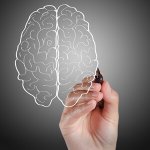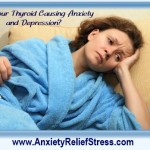Worrying about everyday life events is known as Generalized Anxiety Disorder or GAD. People suffering from this kind of disorder always feel that something disastrous is going to happen, and they cannot stop themselves from worrying about money, health, work, family, college or friends. This worry is unrealistic, making the life a constant state of fear, dread and worry. The anxiety starts dominating the person’s perception, and starts interfering with the daily functioning such as studies, work, relationships or social activities – social anxiety.
Symptoms of Anxiety
Anxiety affects the thinking process of a person, and it can lead to various physical anxiety symptoms including irritability, sweating, headaches, restlessness, nausea, difficulty in concentrating, tiredness, trembling, trouble falling asleep, frequent urination and getting easily startled.
Causes of anxiety are not known fully, but there are various factors that contribute to its development, and these factors are brain chemistry, genetics and environmental stress. People with family history of anxiety are more likely to suffer from it. GAD has been linked with abnormal levels of neurotransmitters in the brain. These are the chemical messengers passing the information between nerve cells, and when they get out of balance, the brain does not receive messages properly. This alters the brain’s reaction to certain situations, causing anxiety.
Certain unpleasant events, trauma, divorce, death of a loved one, or job stress may cause anxiety, and it becomes worse if there is high level of stress.
Treatment of Anxiety
Anxiety is treated by psychologist, psychiatrist, or a mental health professional. These professional are trained to diagnose and treat any kind of mental illnesses. Anxiety treatment includes the combination of cognitive-behavioral anxiety therapy and medications. If the anxiety has started to interfere with daily functioning, medicines available for GAD can be very helpful. These medicines are also called tranquillizers, as they make the person relaxed and calm by reducing the physical symptoms of anxiety.
Cognitive-behavioral therapy helps people by recognizing the factors that cause the troubled feelings, and then change the thought and behavior patterns to deal with them. The therapy helps by having a realistic approach towards worries, and limiting the distorted thinking.
GAD cannot be prevented, but there are some things that can be done to lessen or control the symptoms. This includes reducing the consumption of caffeine containing products such as tea, coffee, chocolate and cola. Talk to your pharmacist or doctor before taking any over the counter herbal remedies or medicines, as they may contain the chemicals that increase the anxiety symptoms. Eat a well-balanced diet, and exercise regularly. If you have suffered a disturbing or traumatic experience, talk to a counselor and seek support.


















Speak Your Mind